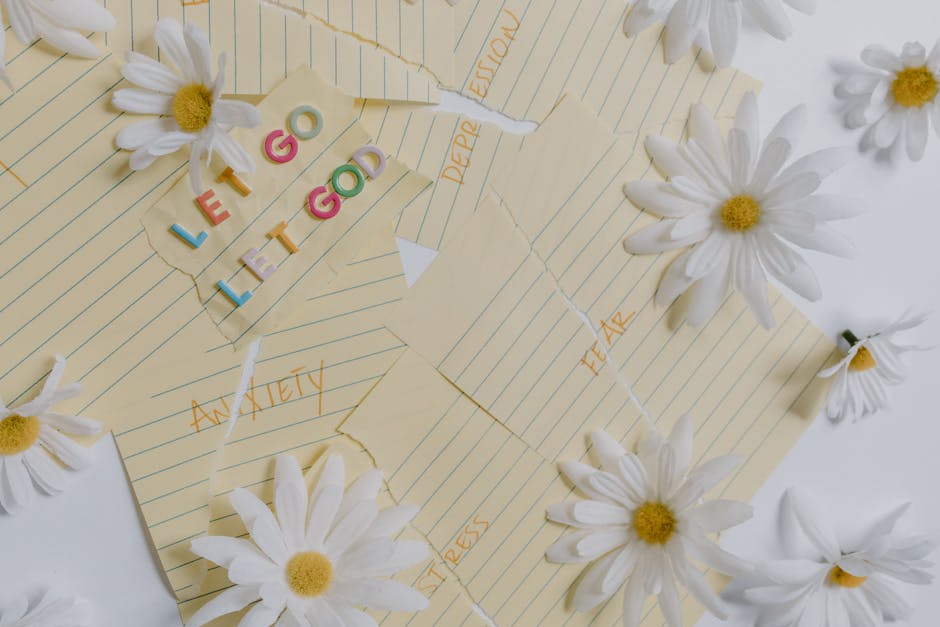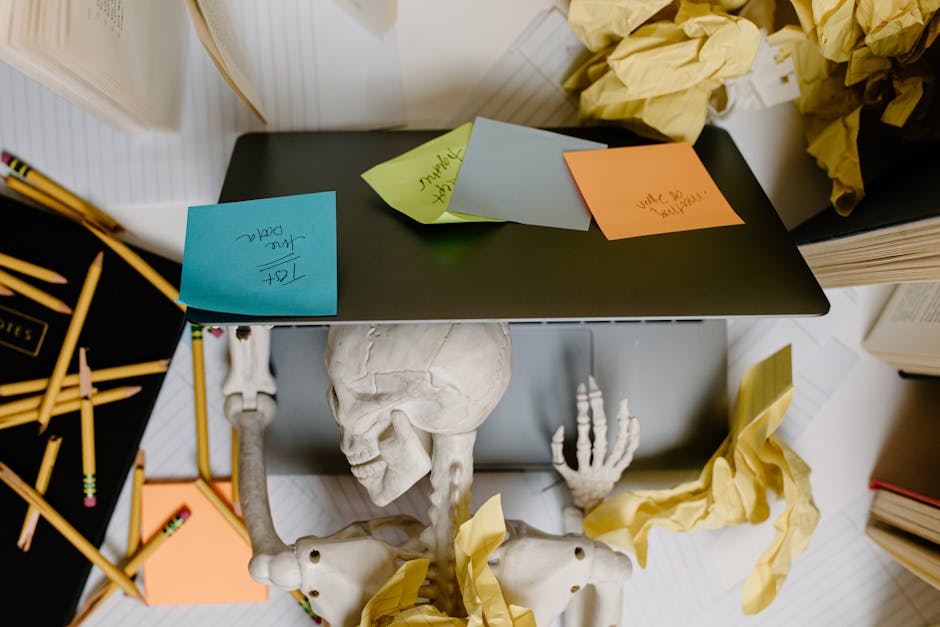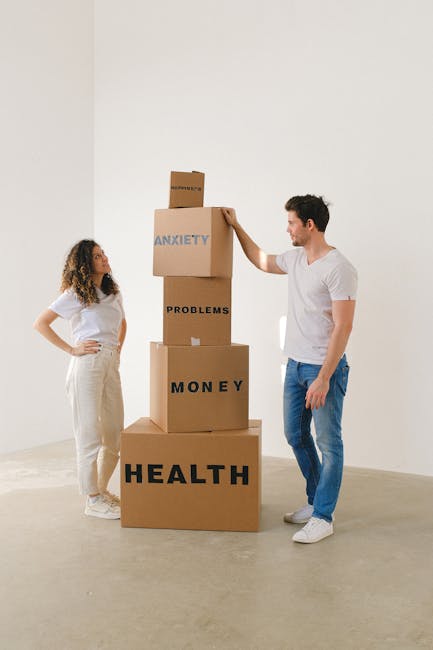Strategies For Dealing With Relationship Anxiety
Feeling anxious in a relationship can feel like trying to enjoy a sunny day while constantly checking for rain clouds. It’s exhausting, confusing, and often leaves you questioning yourself and your partner. But here’s the good news: relationship anxiety is manageable, and you’re not alone in this struggle. By understanding its roots and learning effective strategies, you can build healthier, more fulfilling connections.
Keep reading, and we’ll explore what causes relationship anxiety, how to identify triggers, and actionable steps to ease your worries. Let’s dive in!
Key Takeaways
- Relationship anxiety often stems from past trauma, fear of abandonment, or low self-esteem.
- Recognizing personal and external triggers is crucial for managing anxiety.
- Strategies like mindfulness, open communication, and therapy can help you build stronger, healthier relationships.
Understanding Relationship Anxiety
Definition and Symptoms
Relationship anxiety is the persistent fear or worry about your romantic relationship. It can manifest as overthinking, doubting your partner’s feelings, or constantly seeking reassurance.
Symptoms might include:
– Overanalyzing texts or conversations.
– Feeling insecure about your partner’s commitment.
– Avoiding vulnerability out of fear of rejection.
If this sounds familiar, don’t worry—you’re not broken. Many people experience these feelings, and they can be addressed with the right tools.
Common Causes of Relationship Anxiety
Past Relationship Trauma
If you’ve been hurt before, it’s natural to carry some of that baggage into new relationships. Betrayal, heartbreak, or toxic dynamics can leave scars that make trusting again feel like walking on thin ice.
Fear of Abandonment
The fear of being left behind can make you cling to your partner or push them away. This fear often stems from childhood experiences or past relationships where you felt neglected or unloved.
Low Self-Esteem
When you don’t feel good enough, it’s easy to assume your partner will eventually see your flaws and leave. This can lead to constant self-doubt and a need for validation.

Identifying Triggers of Relationship Anxiety
Recognizing Personal Triggers
Negative Thought Patterns
Do you often think, “What if they don’t love me anymore?” or “What if they find someone better?” These thoughts can spiral out of control, feeding your anxiety.
Avoidance Behaviors
Sometimes, anxiety makes you avoid addressing issues altogether. Ignoring problems might feel safer, but it often creates more tension in the long run.
Understanding External Triggers
Miscommunication
A simple misunderstanding can feel like a catastrophe when you’re already anxious. Miscommunication can amplify doubts and lead to unnecessary conflicts.
Lack of Trust
If trust has been broken in the past, rebuilding it can feel like climbing a mountain. Even small actions can trigger feelings of insecurity.

Effective Coping Strategies
Cultivating Self-Awareness
Identifying and Challenging Negative Thoughts
When anxious thoughts creep in, pause and ask yourself: “Is this thought based on facts or fears?” Challenge irrational beliefs and replace them with more balanced perspectives.
Practicing Mindfulness to Ease Worries
Mindfulness is like a mental reset button. Techniques like deep breathing or meditation can help you stay present and reduce overthinking. Check out these ways to promote mental well-being and reduce anxiety for more tips.
Maintaining Personal Wellbeing
Preserving Individuality
Don’t lose yourself in the relationship. Pursue hobbies, spend time with friends, and nurture your own identity. A strong sense of self can make you feel more secure.
Engaging in Healthy Activities
Exercise, journaling, or creative outlets can help you process emotions and reduce stress. These activities also give you a sense of accomplishment and joy outside the relationship.
Avoiding Impulsive Reactions
When anxiety flares up, it’s tempting to act on impulse—sending a dozen texts or picking a fight. Instead, take a step back, breathe, and respond thoughtfully.

Building a Strong Relationship Foundation
Open and Honest Communication
Sharing Feelings Vulnerably
It’s scary to open up, but vulnerability builds intimacy. Share your fears and insecurities with your partner—they might surprise you with their understanding.
Addressing Concerns Together
Instead of blaming or accusing, approach issues as a team. Use “I” statements like, “I feel anxious when…” to express your feelings without creating defensiveness.
Establishing Trust
Being Honest with Your Partner
Honesty is the cornerstone of trust. Be transparent about your feelings and intentions, even when it’s uncomfortable.
Helping Your Partner Feel Safe and Secure
Trust goes both ways. Show your partner they can rely on you by being consistent and supportive.
Navigating Anxiety as a Team
Supporting Each Other Through Challenges
Relationships thrive when both partners work together. Encourage each other to grow and face challenges head-on.
Engaging in Activities Together
Shared experiences—like cooking, hiking, or even binge-watching a show—can strengthen your bond and create positive memories.

Seeking Professional Support
Individual Therapy
Addressing Personal Anxiety Issues
A therapist can help you unpack the root causes of your anxiety and develop healthier coping mechanisms.
Developing Coping Mechanisms
Therapy provides tools tailored to your needs, helping you manage anxiety more effectively.
Couples Therapy
Strengthening Communication Skills
A counselor can guide you and your partner in improving communication and resolving conflicts constructively.
Building a Secure and Supportive Partnership
Couples therapy fosters understanding and helps you create a safe space for both partners to thrive.
Preventative Measures for Relationship Anxiety
Choosing a Secure and Supportive Partner
A partner who communicates openly, respects boundaries, and values your feelings can make a world of difference.
Cultivating a Strong Sense of Self
Building Confidence and Independence
Confidence isn’t just attractive—it’s empowering. Focus on your strengths and celebrate your achievements.
Prioritizing Personal Growth
Invest in yourself. Whether it’s learning a new skill or practicing self-care, personal growth enhances your overall well-being.

Long-Term Strategies for Managing Relationship Anxiety
Practicing Patience and Understanding
Rome wasn’t built in a day, and neither are healthy relationships. Be patient with yourself and your partner as you navigate challenges.
Continuously Working on Emotional Intimacy
Emotional intimacy is like a garden—it needs regular care. Keep communicating, sharing, and connecting on a deeper level.
Regularly Reassessing and Strengthening the Relationship
Check in with each other regularly. Discuss what’s working, what’s not, and how you can grow together.
Dealing with relationship anxiety isn’t easy, but it’s absolutely possible. By understanding your triggers, practicing self-awareness, and building a strong foundation with your partner, you can create a relationship that feels safe and fulfilling.
For more insights on building healthy connections, check out this guide or explore ways to manage social anxiety. Remember, you’re not alone in this journey, and every step forward is a step toward a happier, healthier you.
FAQ: Strategies for Dealing with Relationship Anxiety – Your Guide to Building Stronger Connections
What is relationship anxiety, and how does it manifest?
Relationship anxiety refers to feelings of worry, insecurity, or fear about your relationship. It can manifest as overthinking, fear of abandonment, constant need for reassurance, or doubting your partner’s feelings, even when there’s no evidence to support these fears.
What are some common causes of relationship anxiety?
Relationship anxiety can stem from past experiences, such as betrayal or abandonment, low self-esteem, attachment styles, or even external pressures like societal expectations. Understanding the root cause is key to addressing it effectively.
How can communication help in managing relationship anxiety?
Open and honest communication allows you to express your feelings and concerns without fear of judgment. It helps build trust and ensures that both partners are on the same page, reducing misunderstandings and anxiety.
What role does self-awareness play in overcoming relationship anxiety?
Self-awareness helps you identify triggers and patterns in your thoughts and behaviors. By understanding your emotions and reactions, you can take proactive steps to manage your anxiety and prevent it from negatively affecting your relationship.
Are there specific coping strategies for dealing with relationship anxiety?
Yes, strategies include practicing mindfulness, focusing on self-care, challenging negative thoughts, setting healthy boundaries, and seeking reassurance in a balanced way. Therapy can also be a valuable tool for managing anxiety.
How can mindfulness help reduce relationship anxiety?
Mindfulness encourages you to stay present and avoid overthinking or catastrophizing. Techniques like deep breathing, meditation, or journaling can help calm your mind and reduce anxious thoughts about your relationship.
When should I consider seeking professional help for relationship anxiety?
If your anxiety is persistent, affects your daily life, or creates significant strain on your relationship, it may be time to seek help from a therapist or counselor. They can provide tools and strategies tailored to your situation.
Can relationship anxiety ever completely go away?
While it may not completely disappear, relationship anxiety can be managed effectively with the right strategies. Over time, with effort and support, you can build healthier thought patterns and stronger relationships.
How can I support my partner if they are experiencing relationship anxiety?
Be patient, listen without judgment, and provide reassurance when needed. Encourage open communication and remind them that their feelings are valid. Supporting them in seeking professional help, if necessary, can also be beneficial.
What are some long-term strategies for maintaining a healthy relationship despite anxiety?
Focus on building trust, maintaining open communication, and fostering emotional intimacy. Regularly check in with each other, practice gratitude, and continue working on personal growth to create a strong foundation for your relationship.



